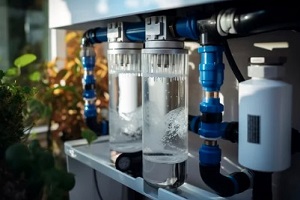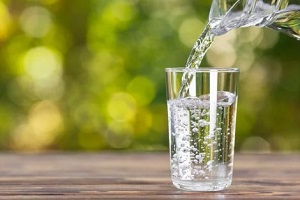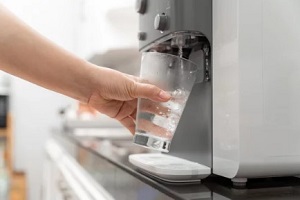 When it comes to improving the water quality of your home or business, two of the most common solutions are water filters and water softeners. But what is the difference between a water filter and a water softener?
When it comes to improving the water quality of your home or business, two of the most common solutions are water filters and water softeners. But what is the difference between a water filter and a water softener?
While both systems enhance water differently, many users find it confusing to determine which type of treatment is right for their needs. Should you install a water filter? A softener? Or both? Read on to find out.
Understanding Hard Water & Associated Problems
Hard water has a high content of dissolved minerals such as calcium and magnesium, and it is these mineral ions that give water its hardness. Measured as either mg/L (milligrams per liter) or GPG (grains per gallon), water over 7GPG or 180 mg/L is considered hard.
The higher the hardness level, the more problems hard water tends to cause. When pipes and appliances have hard water running through them, the minerals can precipitate out, forming scale deposits. Over time, this limescale accumulation can cause costly damage.
Hard water also makes it more difficult to get items clean, resulting in dingy laundry, dishes with spots, and soap scum buildup on fixtures. Hard water can also leave an irritating residue on your skin and hair.
How Do Water Softeners Treat Hardness?
Water softeners are whole-home treatment systems that remove the problematic ions causing water hardness. Most softeners employ a method called ion exchange to replace hard water minerals with softer ions of sodium.
Water flows into a brine tank containing resin beads coated with sodium. As water goes through this resin, the sodium ions swap out the hard minerals.
Softened water prevents scale buildup and makes cleaning tasks much easier resulting in fewer cleaning products and soaps.
Hair and skin will feel noticeably softer and smoother without the irritation caused by hard water. Clothes laundered in softened water come out brighter and cleaner without the dulling effects of hard water.
Salt-Free Water Softening Alternatives
While traditional ion exchange softeners are extremely effective, some people want to avoid the extra sodium they add to water and turn to salt-free water conditioners as an alternative.
Salt-free systems employ template-assisted crystallization (TAC) rather than ion exchange. Hard minerals are conditioned preventing them from binding together and forming scale.
Salt-free conditioners use media made of natural materials such as quartz to attract hardness ions. This process crystallizes the minerals into tiny particles that remain suspended in the water rather than sticking to pipes and fixtures.
Salt-free systems provide scale prevention without chemicals or salt. They are eco-friendly, low-maintenance options for people who want softened water without added sodium.
How Water Filters Remove Contaminants
 While softeners treat hardness, filters remove various water impurities and contaminants. Filtration uses media to block particles and absorb chemicals through processes such as mechanical straining, ion exchange, and adsorption.
While softeners treat hardness, filters remove various water impurities and contaminants. Filtration uses media to block particles and absorb chemicals through processes such as mechanical straining, ion exchange, and adsorption.
Specific filter types target different water problems. For example, sediment filters trap particles such as dirt and rust that can cause discolored or turbid water.
Carbon filters absorb chlorine and chemicals such as pesticides, solvents, and fuel oils that may be present in water. In reverse osmosis filters, water is forced through a membrane, which removes dissolved salts, metals, and other ions.
No matter the filtration method, the result is healthier and cleaner water for your home. Filters also protect appliances and plumbing by reducing scale-forming hardness minerals. With high-quality filtration, you don’t have to worry about foul odors, strange tastes, or contamination in your water.
Water Softener vs Water Filter: Key Differences
To summarize what we’ve covered:
- Water softeners: These specialize in removing hardness minerals that cause scale and detergent efficiency issues. Softened water makes cleaning easier and protects plumbing but doesn’t directly address health concerns.
- Water filters: These target a much broader range of contaminants and impurities that can affect health, taste, odor, and appearance. Filtered water is safer for drinking and cooking but doesn’t provide scale prevention.
Do You Need Both a Water Softener & a Filter?
 Since water softeners and filters have complementary benefits, having both can provide complete water treatment. A softener gives you scale-free pipes and mineral-free cleaning and bathing water. A whole house filter removes potential health hazards from the water you drink and use for food prep.
Since water softeners and filters have complementary benefits, having both can provide complete water treatment. A softener gives you scale-free pipes and mineral-free cleaning and bathing water. A whole house filter removes potential health hazards from the water you drink and use for food prep.
Some all-in-one systems integrate softening and filtration into a single unit, allowing you to have the best of both technologies without needing two separate tanks and control valves. Water that has hardness as well as contamination issues would benefit most from a combo system.
Choose The Right System For Your Water With Hawaiian Cool Water’s Guidance
When it comes to water softeners versus filters, it’s clear these systems serve different purposes. Water softeners remove hardness, while filters target a wide range of contaminants.
To make the best decision for your home, start by testing your water to identify any problematic minerals or impurities. This will reveal whether a water softener, filter, or a combination of both is needed.
With test results in hand, you can select systems sized and designed to handle your specific water challenges. Hawaiian Cool Water’s team of experts is happy to guide you in choosing the optimal water treatment solutions for your household needs.
Together, we can ensure your home enjoys water clear of troublesome contaminants and mineral deposits. For expert assistance selecting and installing the right water softener, filters, and combination systems, contact us today at (808) 755-2369 or request a quote online.


